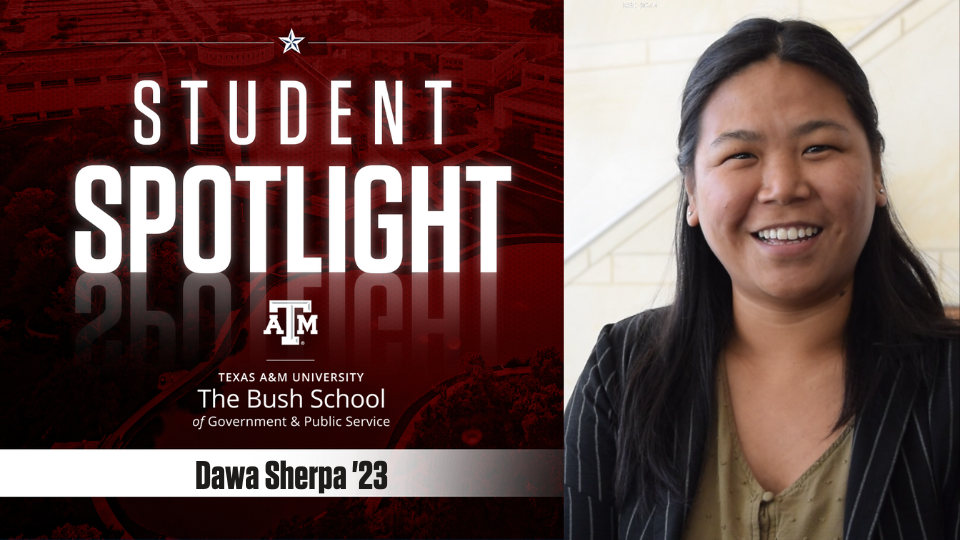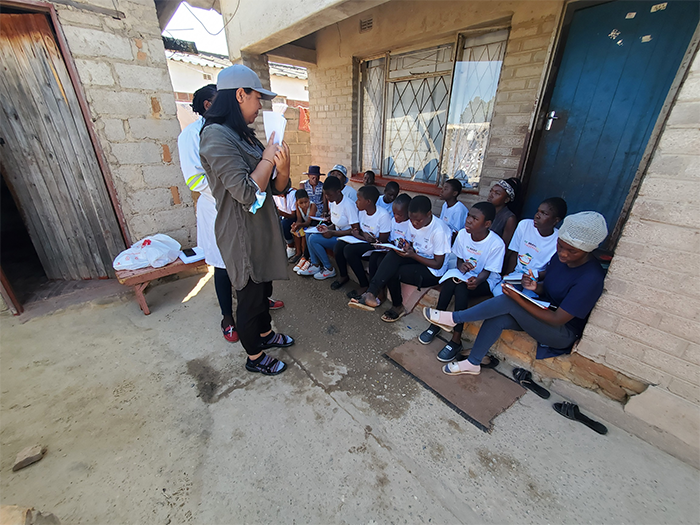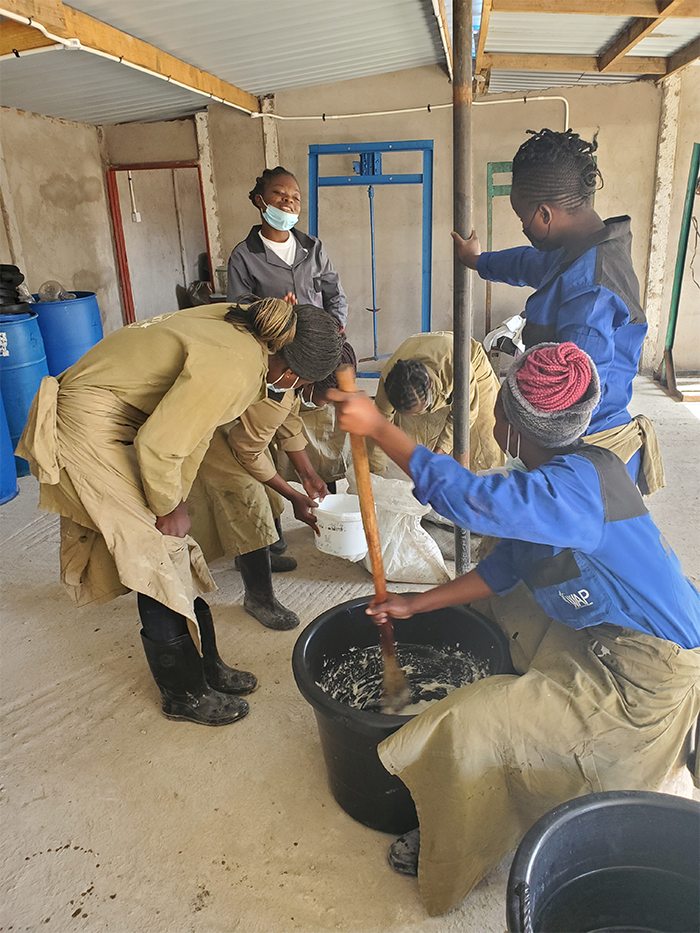
Dawa Sherpa, class of 2023 Master of International Affairs Candidate, discusses how her experience at the Bush School shaped her summer experience with Women Advocacy Project in Harare, Zimbabwe. Dawa is on the International Development and Economic Policy track. Her concentrations are in Women, Peace, & Security and Conflict and Development.
Tells us a little bit about yourself.
Hi, my name is Dawa Sherpa. I am a second-year MIA student in International Development and Economic Policy Track. My concentration is in Women, Peace, and Security, and Conflict and Development.
Tell us more about your summer.
This summer, I had the opportunity to work with Women Advocacy Project in Zimbabwe. Their primary goal is to abolish child marriage and, basically help women have financial independence and young girls to go back to school and complete secondary school. The project was ten weeks long. I worked full-time every week for 35 hours a week, probably more. The project that I worked with had two leaders, a husband and wife, who were basically in charge of the project. They work in 3 communities on the outskirts of Harare, Zimbabwe, which are very vulnerable and prone to early marriage issues for girls. Currently, they’re serving around 60-70 girls and single mothers in those communities, and the project they’re working on is a business that develops liquid dish soap and sells it in those communities as a local, handmade product.
How did you hear about this project?
I got this opportunity to work with Women Advocacy Project through a DC-based non-profit organization called Advocacy Project that sends peace fellows every summer to its partner organization to assist with their initiatives in many countries.

Why did you choose this project?
I was really excited for this opportunity because of my passion to advocate for women’s empowerment and education. Since this project focused on economic empowerment, it gave me a very immersive experience where I could utilize both my business background and the analytical skills, I learned in my classes here at the Bush school to make the project more efficient. And since I hope to create my own women’s entrepreneurship and education project in the future getting to work on a grassroots project in a challenging environment was a great learning experience.
What was the most rewarding part of this project?
I think for me, the most rewarding part of this project was being able to see what I want to do in the future, actually being able to do that right now as one of my first projects. Like I said earlier, I am a Women, Peace, and Security Concentration major and I hope that, someday, in the future, I’ll be able to have a female entrepreneurship and education project that will empower women in Nepal to have financial independence, because I feel like that’s where women’s empowerment really stems from in a lot of relevant countries, is from having financial decision making power. So that was very rewarding, to be able to actually start, as my first project, a women’s advocacy project.
What was the hardest part?
The hardest thing for me was to be able to really learn and pivot when challenging things came my way. Especially being in a developing country, the infrastructure is not there all the time, and I was constantly facing challenges of power cuts and transportation challenges and water issues. There were weeks when we didn’t have water and electricity for the whole week. So I really had to understand and be adaptable and agile about how to pivot my plan. And because I only had a limited time of 10 weeks, I couldn’t afford to just lose my time like that, so being able to just adapt and reconfigure was a very challenging, but very rewarding kind of project. It is very difficult in Zimbabwe right now, especially because of the economic turmoil that it constantly goes through. In its history, it constantly goes through hyperinflation. So, when I was there, the prices were rising again and again. Now the inflation rate is again rising very high, and I think 80-90% of the Zimbabwean economy is an informal economy, which means 80-90% of the population does not have a steady income generation place. It was very tough to see how people are struggling to meet ends meet every day. And being somebody who came from Nepal, I think those are issues that I am really familiar with, but I think, just seeing this in the context of Africa also really resonated with a lot of the challenges I face actually in Nepal, too. And that’s something we studied in our international economic development class. That was the class that really helped me to have that mindset built before I went to Zimbabwe to at least know what to expect, because a lot of the things we covered in that class were the sectors of development that need individual attention like health, education, and gender. And I think going to Zimbabwe after that class really helped me have that mindset of what I’m looking for and what I need to do.
Tell me more about how your classes and how they prepared you.
I think a lot of the classes in the Bush School are very good in the IDEP Track, but the things that really prepared me for this summer were the class that I took with Dr. Serra called International Economic Development, and the class with Dr. Ruyle called Women in Development was also very insightful, because a lot of the cases were focused on Africa.
What are your next steps after doing this project?
Ideally, my next step would be to go to a similar project where I help grassroots projects that are focused on gender equality and women’s empowerment to develop business development or entrepreneurship projects. I’m also in the process of developing my own nonprofit. It’s in a very early stage, but hopefully, in the near future, I’ll have a scholarship chain that will give educational opportunities to girls in Nepal.

What advice do you have?
I just think everybody who is studying IDEP (International Development and Economic Policy) should have field experience. Only by going to a developing country and working there for a certain time you will get insight into the challenges, setbacks, and challenges that actually happen in development projects, and those are sometimes really hard to know if you haven’t really seen it on the ground. So I think, by doing that you’ll be able to actually design and execute sustainable development projects.

